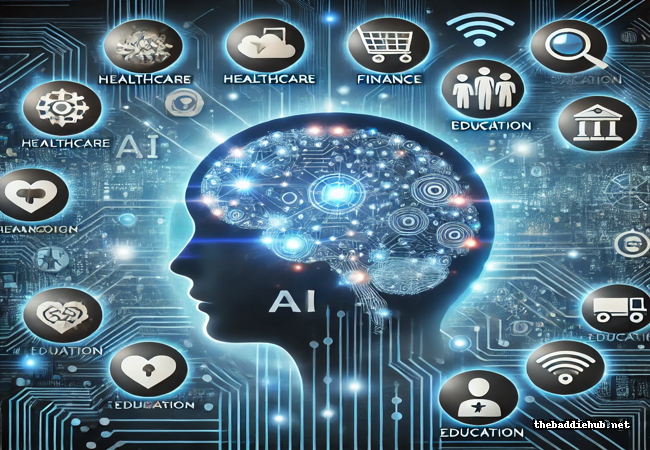Artificial Intelligence (AI) is rapidly transforming the way we live, work, and interact with technology. From voice assistants to self-driving cars, AI is becoming an integral part of our daily routines. Businesses, healthcare, and even education are seeing significant improvements due to AI-powered innovations. In this article, we will explore how AI is influencing different aspects of life and what the future holds for this revolutionary technology.
AI in Personal Assistance
One of the most common uses of AI is in virtual assistants like Google Assistant, Amazon Alexa, and Apple Siri. These voice-powered technologies help users with tasks such as setting alarms, sending messages, checking the weather, and even controlling smart home devices. AI assistants learn from user interactions, improving their responses over time to make life more convenient.
AI in Healthcare
The healthcare industry has greatly benefited from AI advancements. AI-driven diagnostic tools help doctors detect diseases more accurately and at an early stage. Medical imaging, robotic surgeries, and virtual health consultations have also become more efficient due to Artificial Intelligence. With machine learning, AI can analyze vast amounts of medical data, leading to faster and more accurate diagnoses. Additionally, Artificial Intelligence chatbots assist patients by answering health-related questions and scheduling appointments.
AI in Finance and Banking
Financial institutions use AI for fraud detection, risk assessment, and customer service. AI-driven algorithms monitor banking transactions and detect unusual patterns that could indicate fraudulent activity. AI-powered chatbots and virtual assistants help customers with banking queries, reducing the need for human assistance. Additionally, AI is widely used in stock market trading, where it analyzes market trends and executes trades in real time.
AI in E-commerce
Online shopping platforms use AI to enhance the customer experience. Artificial Intelligence-powered recommendation systems analyze user preferences and browsing history to suggest products that match their interests. Chatbots assist customers by answering their queries and helping them find the right products. basically, AI also plays a role in inventory management by predicting demand and optimizing stock levels, ensuring that businesses operate efficiently.
AI in Transportation
AI is playing a crucial role in the development of self-driving cars and smart transportation systems. Companies like Tesla, Waymo, and Uber are investing heavily in AI to create autonomous vehicles that improve road safety and reduce traffic congestion. AI is also used in traffic management systems to optimize signal timings and reduce travel time for commuters.
AI in Entertainment
The entertainment industry leverages AI for content recommendations, video editing, and even scriptwriting. Streaming platforms like Netflix and YouTube use AI algorithms to suggest movies and shows based on user preferences. AI is also used to enhance video game experiences by creating artificial intelligence, responsive characters that adapt to player behavior.
The Future of AI
The future of AI looks promising, with continuous advancements in machine learning, robotics, and automation. Artificial Intelligence is expected to revolutionize industries further by making processes more efficient and reducing human workload. However, ethical concerns surrounding AI, such as data privacy and job displacement, need to be address. Governments and organizations must establish regulations to ensure that AI is use responsibly and ethically.
Conclusion
Artificial Intelligence is no longer a futuristic concept; it is a reality that is shaping our world today. From healthcare and finance to education and entertainment, AI is improving efficiency and convenience in multiple sectors. As AI technology continues to evolve, it will bring even greater innovations and challenges. Understanding its impact and using it responsibly will be crucial in ensuring a balanced and beneficial integration into society.
